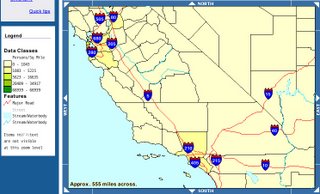Re engineering
The hope for my other blog was to cover different topics, but my life has taken a turn, so I have decided to blog about it:
http://reengineered.blogspot.com/
At this point, just some musings. I'll try to post progress reports about planes and stuff.
The hope for my other blog was to cover different topics, but my life has taken a turn, so I have decided to blog about it:

When MySpace and Facebook were at the stage that Twitter is at today, their retention rates were, according to Nielsen, twice as high - and they've now stabilized at nearly 70 percent. Twitter's high rate of churn will, if it continues, hamstring the service's growth, says Nielsen's David Martin: "A retention rate of 40 percent will limit a site’s growth to about a 10 percent reach figure ... There simply aren’t enough new users to make up for defecting ones after a certain point. [Twitter] will not be able to sustain its meteoric rise without establishing a higher level of user loyalty."
Labels: The 70s Are Back :-/
If you paid somebody to look after your financial interests, could you trust them? Here is a sampling of professional stock analysts in action, providing advice on Countrywide Financial Corporation stock, excerpted from Yahoo! Finance:
CFC Analyst Ratings
Month......: Jun Jul Aug Sep
Stock Price: 38. 37. 27. 18
Strong Buy.: 4.. 3.. 3.. 2
Buy........: 3.. 3.. 3.. 4
Hold.......: 4.. 5.. 5.. 5
Sell.......: 3.. 2.. 2.. 1
Strong Sell: 2.. 2.. 2.. 4
Sell or SS.: 31% 27% 27% 31%

The Bureau of Economic Analysis has a set of data that they collect, trying to compare economic trends over time. I follow Table 2.6 pretty closely... September preliminary numbers indicate a savings rate of -0.2 percent. Better, but still out of balance.
Lou in Houston made me think about my small set of White-Tailed Kite pictures from June 13, 2006. I thought I would post them.








